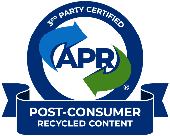Q&A: Ex-Walgreens CEO launches start-up tech venture
Former Walgreens CEO Greg Wasson is hoping to bridge the divide between major corporations and start-ups -- and to create some new businesses in the process.
Apr. 25, 2017 - Nathan Bomey - USA Today
Former Walgreens CEO Greg Wasson is hoping to bridge the divide between major corporations and start-ups -- and to create some new businesses in the process.
His new venture, appropriately named Innventure, is focused on helping large corporations identify technologies they've developed that have commercial potential and can be spun off into independent businesses.
Chicago-based Innventure was formed as a joint venture of the former Walgreens chief's investment company, Wasson Enterprise, and a separate start-up already known as Innventure.
"We are bringing the entrepreneurial start-up world together with my experience from corporate America," Wasson said. "We’re nurturing a few other multi-national corporations as we speak."
Wasson is serving as chairman and Innventure co-founder Michael Otworth is serving as CEO. The original Innventure had already secured Procter & Gamble as a client and created a plastics recycling company called Pure Cycle Technologies, based on P&G intellectual property.
Wasson said Innventure is "nurturing a few other multi-national corporations as we speak." The model is predicated on spotting commercially viable technology inside large corporations, identifying a business model, recruiting talent, luring investors and forming new companies.
P&G will receive licensing fees for Pure Cycle, while future companies could be formed based on other financial arrangements.
The model is not unlike research universities that license intellectual property to start-up companies in exchange for an ownership stake or licensing revenue.
Wasson, who spent 35 years at Walgreens and left shortly after the company completed its tie-up with Europe's Alliance Boots in 2015, recently spoke to USA TODAY about Innventure, lessons learned on the new job and whether Walgreens' proposed deal to acquire rival Rite Aid should go through.
Excerpts, edited for length and clarity:
Q: What sectors afford the greatest opportunity for this type of model?
I’d look at it less across sector and more with corporations who have powerful R&D engines. They may have technologies that they’ve been working on but may not want to get into the business of actually producing that technology and that product.
Q: The big question in your former industry is whether the U.S. government should authorize Walgreens’ acquisition of Rite Aid. Do you have a perspective on that?
I certainly can’t speak for Walgreens and don’t have any knowledge other than what I read. But certainly mergers like this are incredibly complex.
Q: How will online competition change the complexion of the industry?
There are several startups as well as brick-and-mortar retailers that are looking for the perfect blend of brick and mortar and online. I think there is a perfect blend there. It’s ultimately what consumers are looking for.
Q: What lessons have you learned in transitioning to start-ups?
I really had to learn this world. Corporate America and the start-up world are completely different. Start-ups can be flexible and nimble, not that corporate America isn't. But they’re every day looking at some obstacle and challenge.
It’s enjoyable spending time with founders who have a passion, who have an idea and are trying to figure out how to start a new business
I had a terrific, enjoyable 35-year career in corporate America, and I’m having as much fun in the start-up world.






-1.png)
